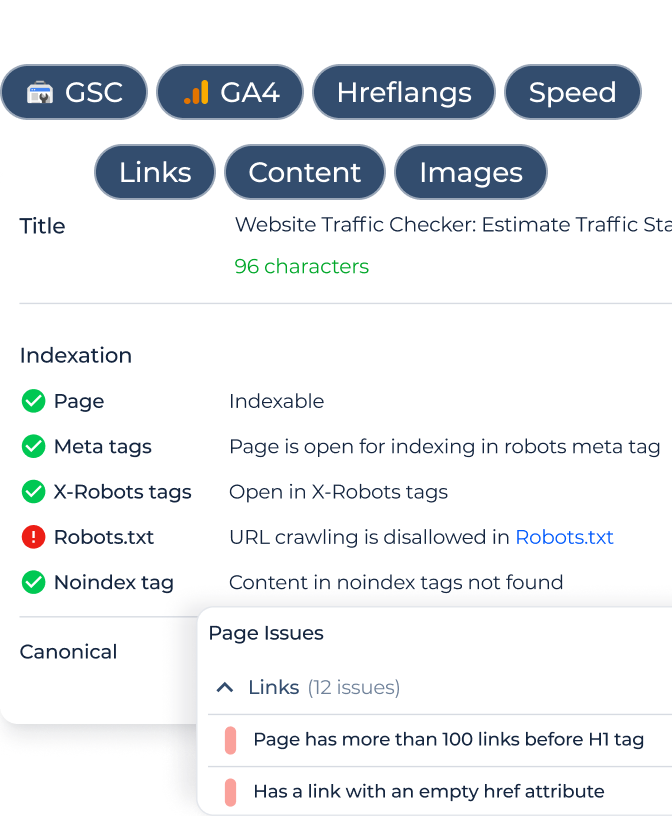What is a GZIP Checker?
The GZIP Compression Tester is an online tool designed to improve website performance by checking for data compaction. With its help, website owners and developers identify whether their web pages are compressed efficiently. They can address issues related to slow load times and large data transfer sizes, enhancing user experience through faster website access.
How the GZIP Compression Tool Can Benefit You
Verification of data compaction: Ensures that the data compaction functionality is active and available on your website.
Website Monitoring: Allows for identifying site speed errors in real time, understanding their causes, and tracking their dynamics.
Custom Alerts: Delivers notifications about errors related to download speed problems to keep you informed and proactive.
Site audit: Quickly identifies webpage loading speed issues and overall site performance.
Error Resolution Recommendations: Provide actionable advice on rectifying these issues.
Key Features of GZIP Compression Tester
Unified Dashboard: A centralized platform for seamless management and monitoring of your website’s performance metrics.
User-Friendly Interface: Ensures a smooth experience and ease of use, even for those with minimal technical expertise.
Complete SEO Toolset: A comprehensive suite of SEO tools that provides everything you need to optimize your website’s search engine ranking.
How to Use the GZIP Compression Checker
Step 1: Insert your domain
Our GZIP Tester checks whether data compaction is enabled on the web server hosting your site. The tool will connect to your server and display whether data compaction is up and running.
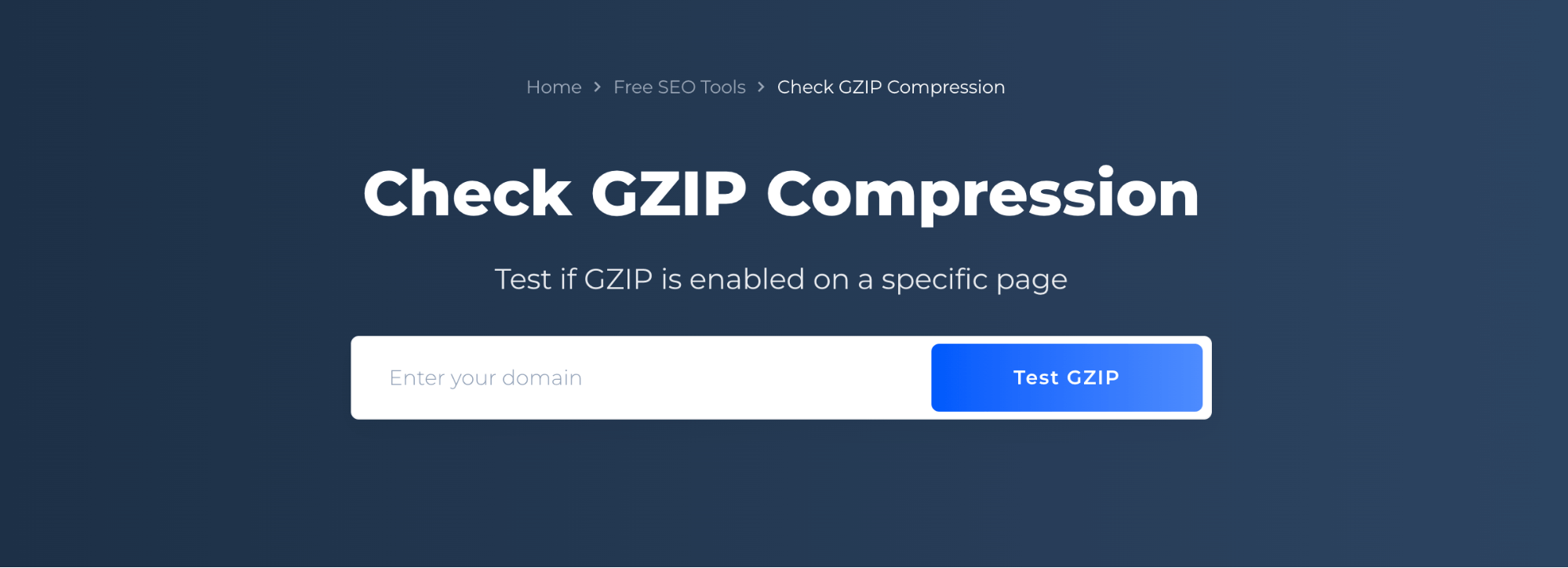
Step 2: Interpreting the GZIP compression checker results
Below the input area, a result box confirms the successful activation of the compression algorithm. It shows a notable decrease in page size, which underscores optimization’s efficiency in improving website performance by minimizing data transfer.
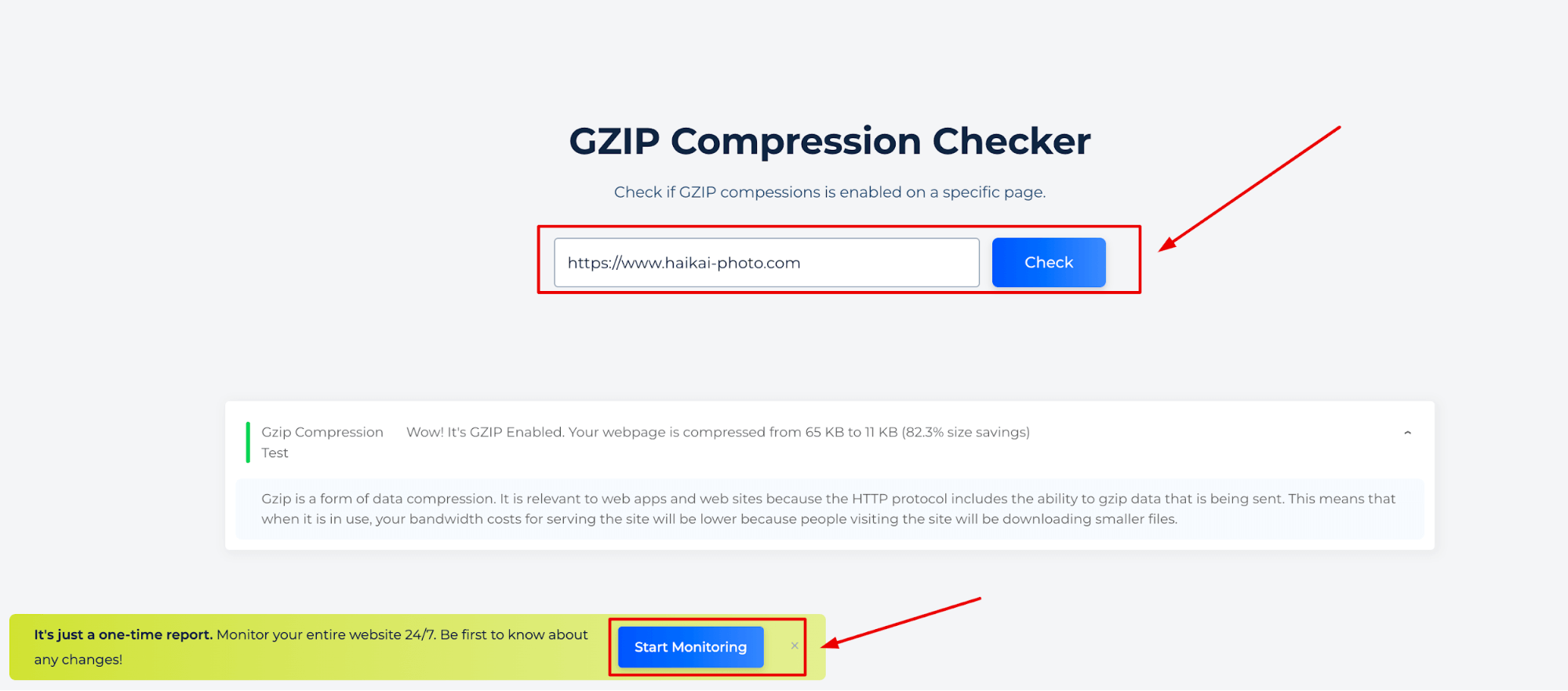
For sustained management of your website’s data compaction status, consider a monitoring service that offers continuous, 24/7 oversight capabilities. Start your free trial to access more data and maximize SiteChecker’s effectiveness. The tool will gather the essential data for monitoring your website’s key health indicators.
Check Website Compression and Integrated Monitoring
Enhance site performance using GZIP Test Online, backed by an intuitive monitoring dashboard:
- Instant Alerts: Keep track of crucial updates, like optimizations to reduce DOM width, directly affecting load speeds.
- Audit Insights: Access visual graphs displaying your site’s audit trail, from issue detection to resolution, reflected in a comprehensive website score.
- Targeted Focus: Use filters to hone in on page speed improvements.
Leverage our tool for a seamless, fast, and more searchable online presence.
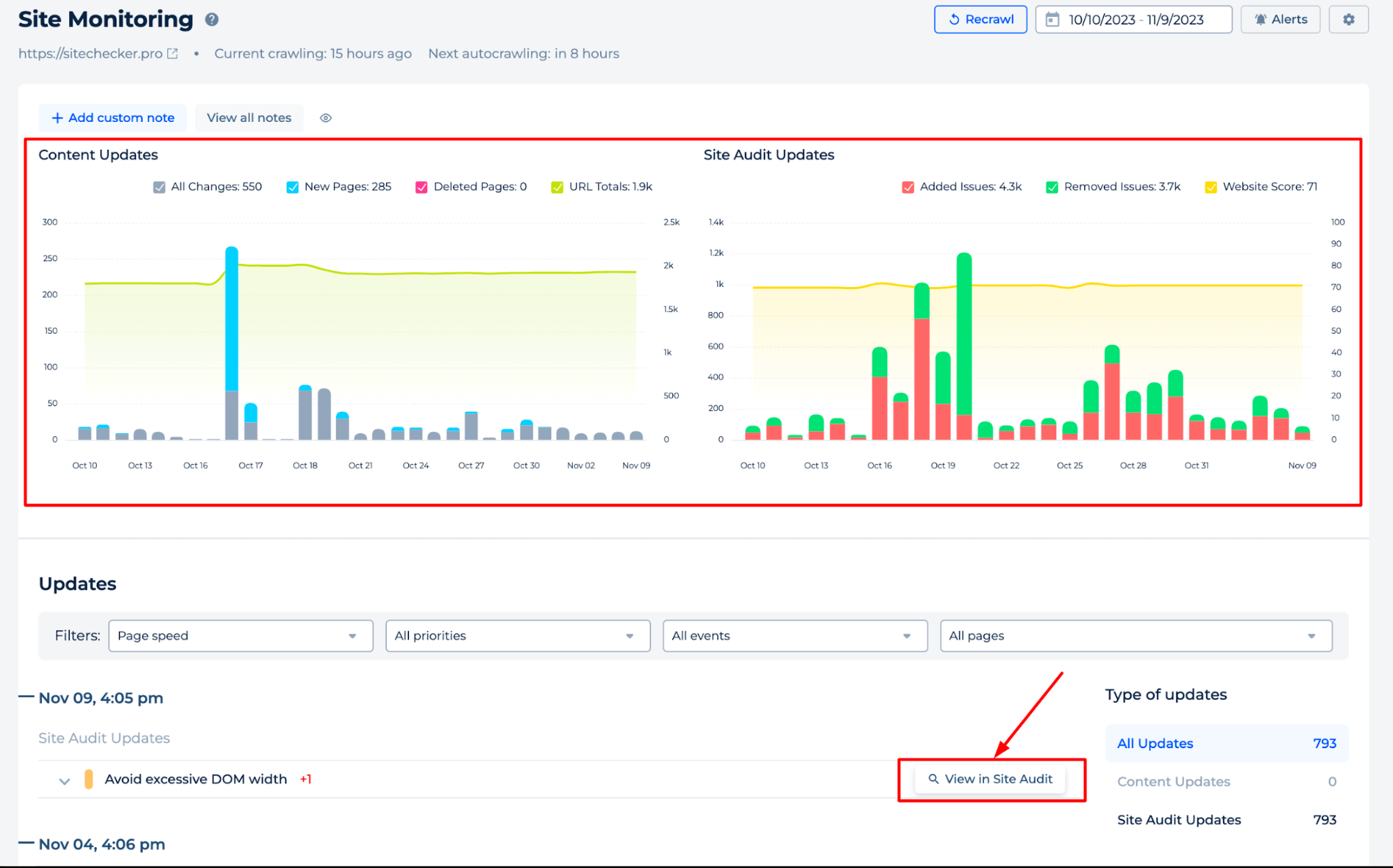
Additional Features of GZIP Test
The “Site Audit” section of a web optimization platform highlights page speed issues affecting site performance and conversion rates. It detects problems with image optimization, code efficiency, and file sizes requiring your attention. The home page’s speed scores from Mobile and Desktop PageSpeed Insights serve as benchmarks.
The audit also confirms areas with no issues and displays a bar graph of affected page percentages. It offers a full view of web performance to streamline page load and times via test GZIP data compression integration.
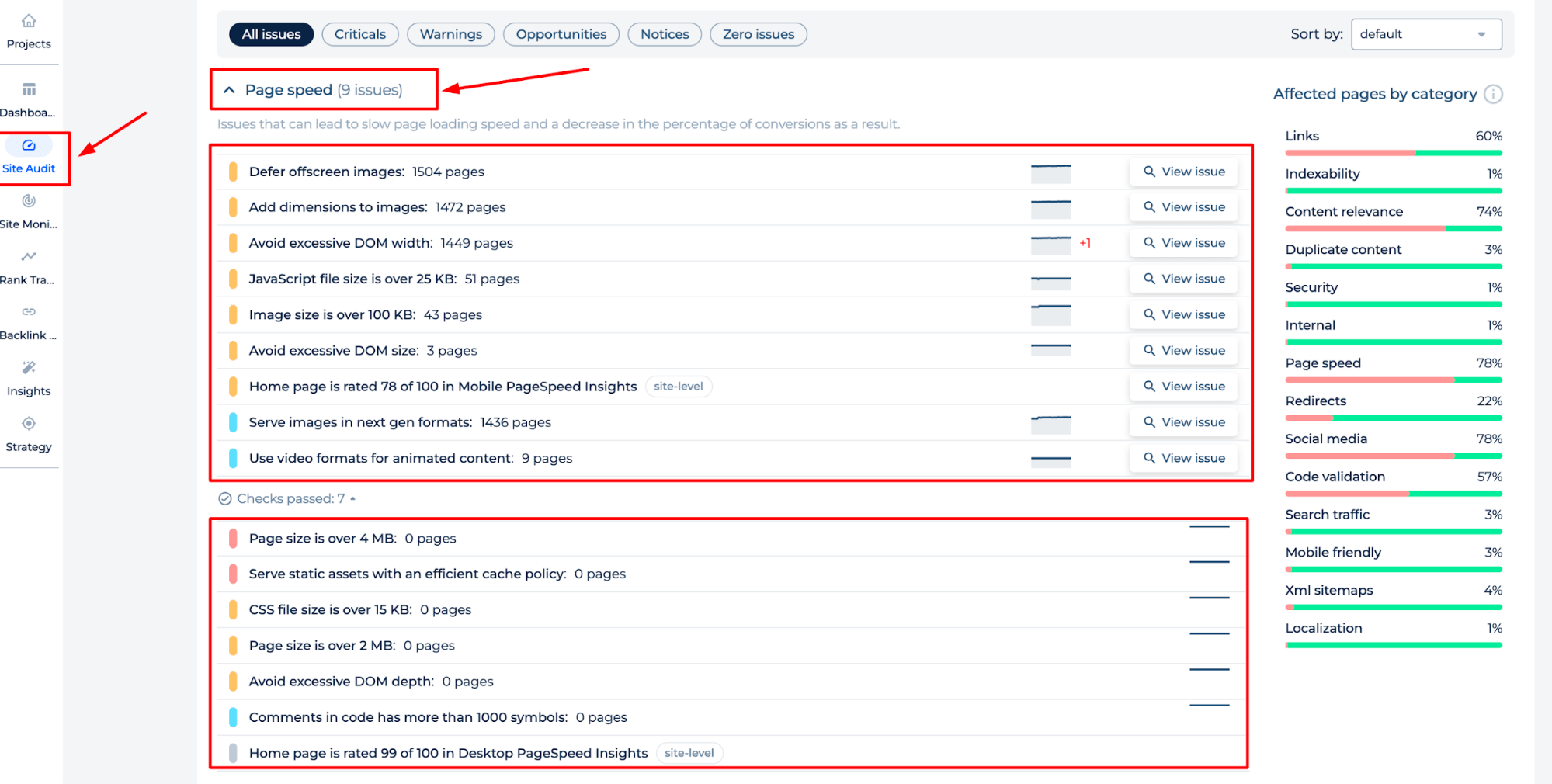
For instance, when selecting “View issue” for the Defer Offscreen Images issue, you will access a list of all site pages experiencing this issue. This feature examines the specific error within the page code and provides recommendations on resolving the challenge.
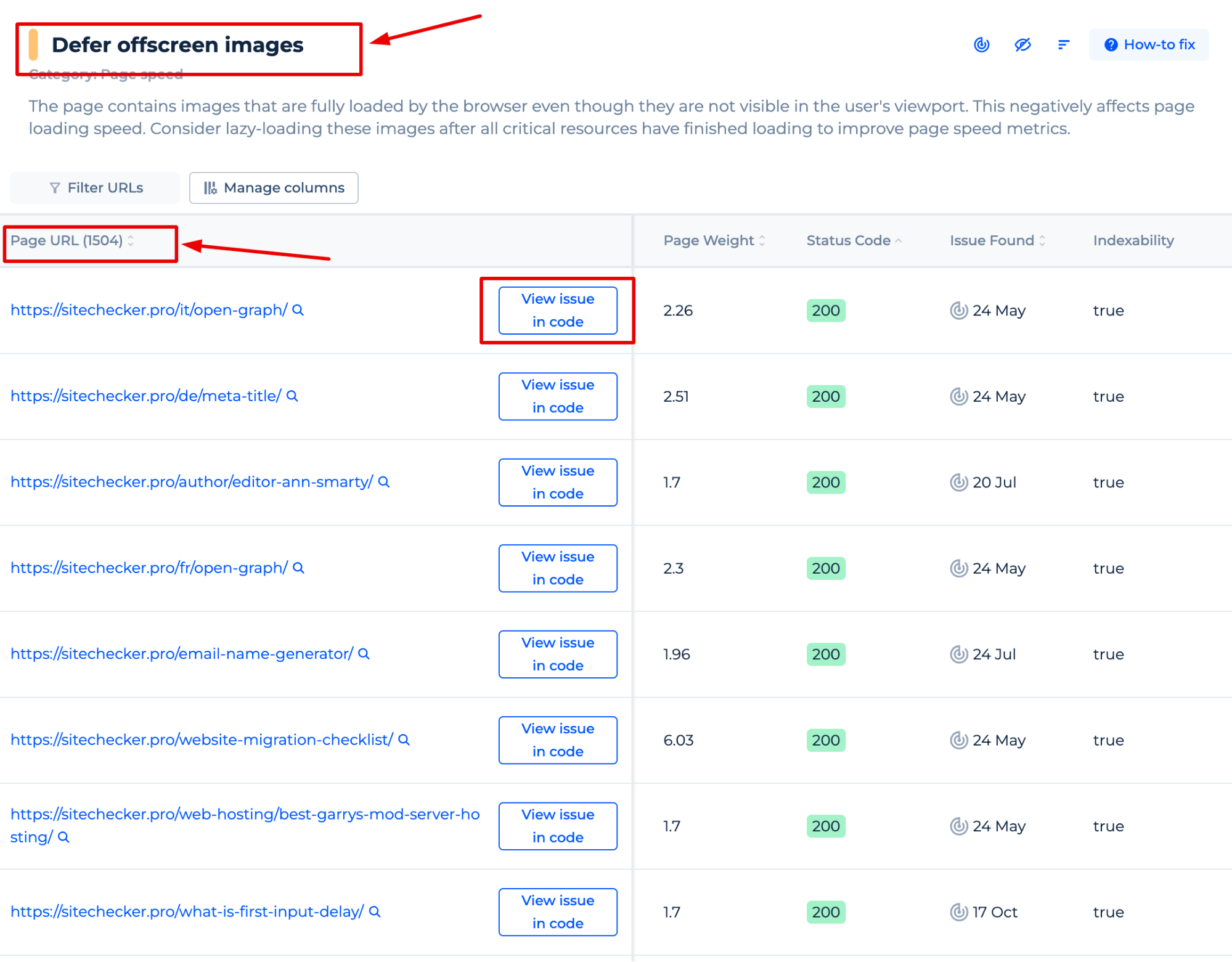
Final Idea
Enabling text compression reduces the size of text data transferred over the internet, enhancing website performance and user experience. This involves configuring servers or CDNs to use algorithms like GZIP Compression, Brotli, or Deflate to compress files. By compressing data, you save bandwidth and improve load times, which directly benefits SEO and user satisfaction.
This process is typically managed through server settings or CDN configurations. Users can check if compression is enabled using online tools like GTmetrix or WebPageTest, or command line tools like cURL or wget. If compression is not enabled, it can be fixed by adjusting server settings in Apache, Nginx, IIS, or via CDN platforms like Cloudflare or AWS CloudFront.










